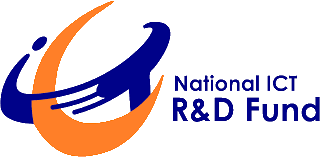 "Say No To Drugs"
"Say No To Drugs"
- About
- Admission
- Administration
- Departments
-
- Departments
- Faculty of Physical and Environmental Science
- Dean Message
- Department of Chemistry
- Department of Mathematics
- Department of Physics
- Department of Statistics
- Department of Computer Science & IT
- Department of Geology
- Department of Renewable Energy
- Department of Geophysics
- Centre of Excellence in Mineralogy
- Department of Environmental Sciences
- Department of Geography and Regional Planning
- Faculty of Arts and Humanities
- Faculty of Pharmacy And Health Sciences
- Faculty of Life Sciences
- Faculty of Literature & Languages
- Faculty of Management and Information Sciences
- Faculty of Social Sciences
- Dean Message
- Department of Anthropology
- Area Study Center
- Department of Disaster Management & Development studies
- International Relations Department
- University Law College
- Department of Political Science
- Department of Social Work
- Department of Sociology
- Department of Gender & Development Studies
- Pakistan Study Center
-
-
- Library
- Publications
- Journals
- NewsLetters
- Reports
- Prospectus
- Prospectus BS 2023
- Prospectus BS 2022
- Prospectus Masters 2021
- Prospectus BS 2020
- Prospectus Master 2020
- Prospectus BS 2019
- Prospectus Masters 2019
- M.Phil/MS & PhD Prospectus 2018
- Prospectus BS 2018
- Prospectus 2018
- Prospectus 2017
- Prospectus BS2017
- Distance Learning
- Prospectus BS2016
- Prospectus 2016
- Prospectus 2015
- Prospectus BS2015-16
- Prospectus 2014
- Prospectus 2013
- Prospectus BS2013-14
- Videos
- Convocation
- QAAD
- FTDC
- ORIC
- GSO
- UGSO
- DPR
LATEST INFORMATION
DEPARTMENT OF LIBRARY AND INFORMATION SCIENCE
Men's cultural development was slow until he learned to make a more or less permanent record of his achievements. After he began to record his knowledge by various forms of writing, and eventually through printing, photographic and electronic media, his progress was greatly accelerated.
From the earliest times the preservation and supervision of the records of society, whatever their form, has been the responsibility of carefully chose members of the community who have been specially educated for this work. During the twentieth century with the tremendous increase of knowledge of himself and his world and with development of many new forms of recording ideas and the formation, the functions of such individuals have grown in number, in complexity and in value.
Today, in all countries there is no work of greater importance to progress in every sector of society then that of managing the availability and flow of knowledge. The accelerated expansion and creation of libraries and information agencies of all kinds, as well as development of new means of producing and recording knowledge have created new positions so rapidly that professional training agencies throughout the world have not been able to prepare individuals fast enough to meet the requirements of the communication and information service professions. Although there are today more students in more professional schools than ever before, the opportunities still exceed the supply. Especially it is true of students engaged in the study of library and information sciences.
The current rapid rate of development of new libraries and information service agencies is caused in part by the population explosion. More people are reading more books, more students in schools, colleges, and universities are using these libraries more extensively. The impact of the computer, in particular, is being felt in library operations and information handling and strongly reflected in the curricula of library schools today.
Information literates are not those who have information, but are those who know how to use information. Alvin Toffler writes: The illiterates of 21st century will not be those who cannot read and write, but those who cannot learn, unlearn and relearn. These two quotations indicate 21st century is the century of information, knowledge and wisdom.
Both the courses shall prepare the students for positions in all of the several types of libraries: in school libraries, in college and university libraries, in public libraries, or in special libraries as well as Information Centers. The minimum educational qualifications needed for professional service are a Bachelor's degree from a recognized university and a Master's degree in the field from one of the Universities Offering Library and Information Science courses in Pakistan.
Library plays an important role in providing information and as well as preserving the reading material for the coming generations. It is also considered the protector of knowledge in all its verity. The role of library could never be ignored in the past not it could be in the present time. In this era of information technology, the concept of libraries has drastically changed and the discipline of library and information management has emerged with and altogether in order to meet the need of libraries the sound man power matching the need of the day is inevitable as it is the library staff which can make or mark the library.
Rationale:
Information is an important source in daily life of individuals, organizations and society. Owing to these facts the world is become a global village. Libraries have been considering for the repository of information from ancient to present era, whereas the sources and resources of information are changing exponentially with the accelerated pace of information explosion. Information of any kind is considered as commodity as well as currency in all the spheres of life. Presently, the paradigm is shifted from traditional to automated librarianship whereas, all functions and services of the libraries are provided by using information communication technology/social media. The Bachelor of Library and Information Science (BLIS) degree program at University of Balochistan cuts across disciplines whilst being professionally focused. The cross-functional approaches in LIS education further necessitate the orientation of a blend of courses from social and pure sciences. It will address the challenges and directions in such a way that meet the library settings compatible to the library users. This should help to produce librarians who are marketable, domestically, nationally and internationally. Furthermore, the program has a major element of training in information technology, information management, core LIS courses along with social science, humanities and pure science course. Resultantly, it will enable the graduates to be even more competitive in the job market. This BS curriculum meets the national and international standards to achieve the educational goals by adhering the curriculum policies of HEC.
The basic rationale of the course is given blew:
- A basic core is being identified which is expected to develop essential competencies for any entry level professional in library and information sciences.
- Instead of offering types of library courses, clusters of elective courses have been designed with the aim to develop specialized skills in the area of interest of an individual student. The requirement that each student must take at least one course from each of the three proposed, will ensure that the desired blend of understanding resources and services in specialized domains of knowledge will also be combined with the needed skills in the applications of information technology.
- An emphasis has been placed on the applied aspect of the library education. Assignments/projects and practice sessions have been introduced in all the courses where practical work is a requirement. In all such courses a sizeable portion of evaluation will be based on the performance of a student in the applied or practical augment. An internship requirement has also been introduced after the satisfactory completion of the first year of studies by a student.
- It was also agreed that the core and elective courses needed to be brought in line with internationally accepted standards and practices. Since important changes are occurring in technical operations in libraries, their instructions need to be integrated. Instead of separate courses on classification and cataloguing, there is a need to teach these courses by using fresh approaches and modern techniques. However, advanced courses in technical areas are to be offered beyond the level of core courses for those who intend to specialize in these areas.
Objectives:
- To create an understanding among the students about information dynamics and its relativity with the body of knowledge.
- To inculcate skills among students for evaluation, interpretation and use of information and documents in various forms.
- To develop skills among students for the organization of information sources and documents.
- To make the students aware of the service philosophy of library and information organization and to develop relevant skills for design and delivery of appropriate information services.
- To develop an understanding among students about the properties of literature in specialized domains and how these are reflected in management of different types of library and information agencies.
- To develop skills among students about the use of scientific methods of research and to promote problem oriented research related to library and information science in Pakistan.
- To develop understanding among the students about the application of information technology for efficient organization, storage and retrieval of information.
- To develop competencies among students for the management of libraries and information centers.
Teaching
Most of the courses will be taught through lectures, supported by tutorials, practical work, workshops, presentations, assignments and seminars.
Contact Information:
Department of Library and Information Science, University of Balochistan, Quetta
Phone: +92-81-9211251, (Intercom: 1470)
News & Events
VPN & Smart WIFI
VPN Forms and detailed
procedure.
Smart University WIFi Forms
and detailed procedure.
Examination
Examination Notifications.
Roll Number Slips.
Result Notifications.
Viva & Seminars.


.jpg)



